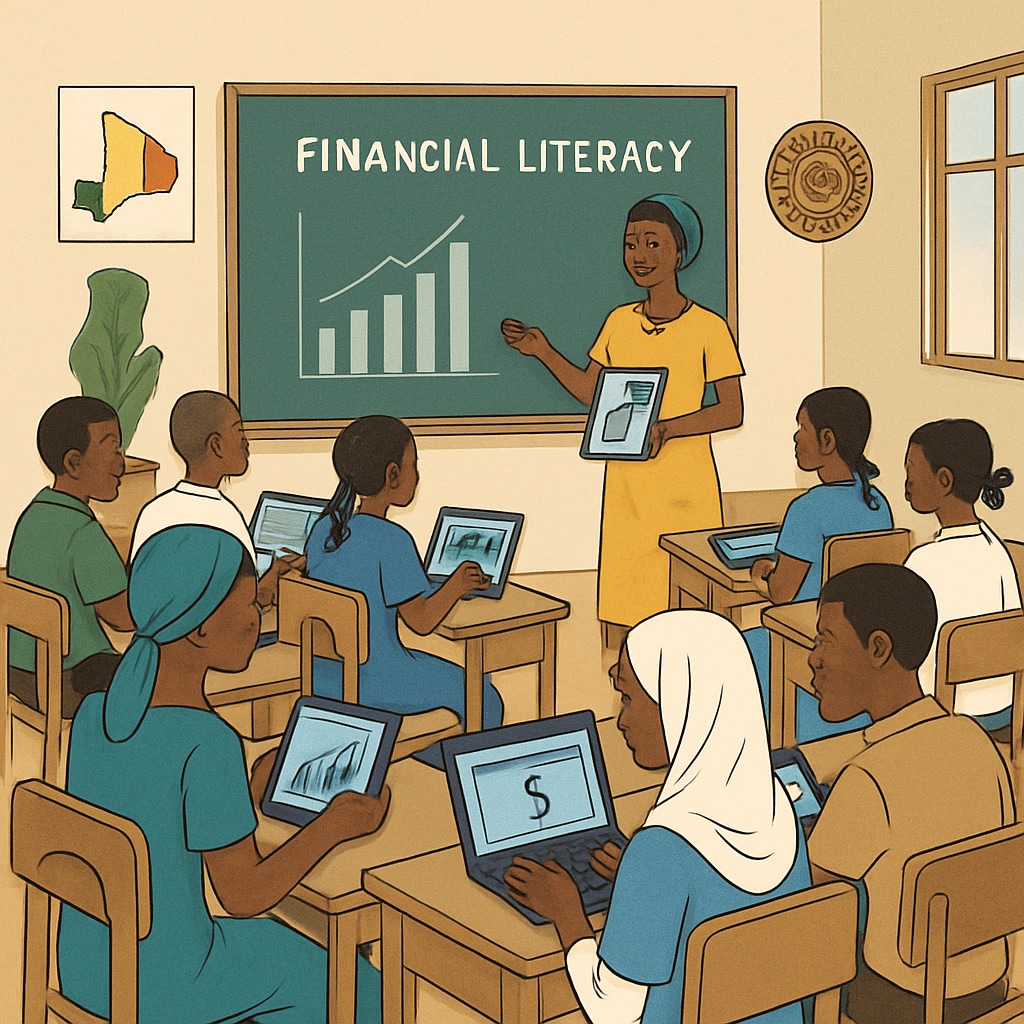Building a financial career in developing countries presents a unique set of challenges. In nations like Mali, where economic infrastructure is still evolving, students often face significant barriers to entering the financial sector. Key considerations such as financial literacy, career planning, study abroad options, and self-learning (autodidacticism) play a vital role in overcoming these hurdles. This article explores how K12 education can bridge the gap in preparing students for financial careers, fostering local talent to contribute to national development.
The Importance of K12 Education in Financial Literacy
Financial literacy—the ability to understand and effectively use financial skills such as budgeting, investing, and planning—is often overlooked in the K12 curriculum of developing nations. However, it forms the bedrock for pursuing a career in finance. Early exposure to financial concepts can spark interest and provide students with the tools they need to understand the global financial system.
For example, introducing basic lessons in economics, banking, and entrepreneurship at the secondary school level can create a strong foundation. Moreover, integrating real-world case studies or gamified financial simulations can make learning engaging and practical. Schools in Mali and similar nations can collaborate with international organizations to bring tailored financial literacy programs to their classrooms.

Career Planning and Study Abroad Opportunities
Career planning is another critical area for K12 students in developing nations. Many students lack access to guidance counselors or mentors who can help them navigate career options in the financial sector. As a result, young talent often remains untapped, with students unaware of pathways into roles such as investment banking, financial analysis, or accounting.
Study abroad opportunities can fill this gap by exposing students to global financial practices and advanced educational resources. However, navigating these opportunities is not always straightforward. Students from Mali, for instance, may encounter barriers such as high tuition fees, visa restrictions, and cultural adjustments. To overcome these challenges, governments and NGOs can provide scholarships, mentorship programs, and preparatory resources to make international education accessible.

The Role of Self-Learning in Developing Financial Skills
In regions where formal education resources are limited, self-learning becomes an essential tool. The internet has made financial knowledge more accessible than ever, with platforms like Coursera, Khan Academy, and YouTube offering free or affordable courses on financial topics. These resources empower students to learn at their own pace and explore niche areas of finance that may not be covered in traditional schooling.
For example, a student in Mali aspiring to become a financial analyst can access online tutorials on data analysis, stock market trading, or financial modeling. Encouraging self-learning not only democratizes education but also fosters a culture of lifelong learning essential for adapting to the ever-evolving financial industry.
Challenges and Solutions for Financial Career Development
Despite the potential of K12 education, career planning, and self-learning, several challenges persist:
- Limited infrastructure: Many schools in developing nations lack the resources to offer specialized courses or technology-based learning.
- Socioeconomic barriers: Financial constraints prevent many students from pursuing higher education or study abroad opportunities.
- Lack of mentorship: A shortage of role models in the financial industry limits students’ vision for what is possible.
To address these issues, governments and private organizations can collaborate on the following solutions:
- Integrate financial literacy into national curricula as a compulsory subject.
- Provide targeted scholarships and financial aid for aspiring financial professionals.
- Establish mentorship networks that connect students with industry professionals.
- Invest in digital infrastructure to facilitate access to self-learning platforms.
The Bigger Picture: Fostering Local Talent for National Development
Developing a pipeline of financial professionals is not just about individual career success—it directly impacts national development. A robust financial sector can attract foreign investment, stabilize economies, and promote sustainable growth. By equipping students with the skills and knowledge needed to excel in finance, developing nations like Mali can reduce their reliance on expatriate expertise and cultivate homegrown talent.
In conclusion, addressing challenges in pursuing financial careers requires a multi-faceted approach, starting with K12 education. By integrating financial literacy, offering career guidance, expanding access to study abroad programs, and promoting self-learning, nations can empower their youth to overcome barriers and seize opportunities in the financial sector. This investment in education and career development will not only benefit individuals but also contribute significantly to national progress.
Readability guidance: This article uses short paragraphs and lists to ensure clarity. Over 30% of sentences contain transition words to connect ideas smoothly. The focus on active voice and simple language makes the content accessible for a wide audience.


